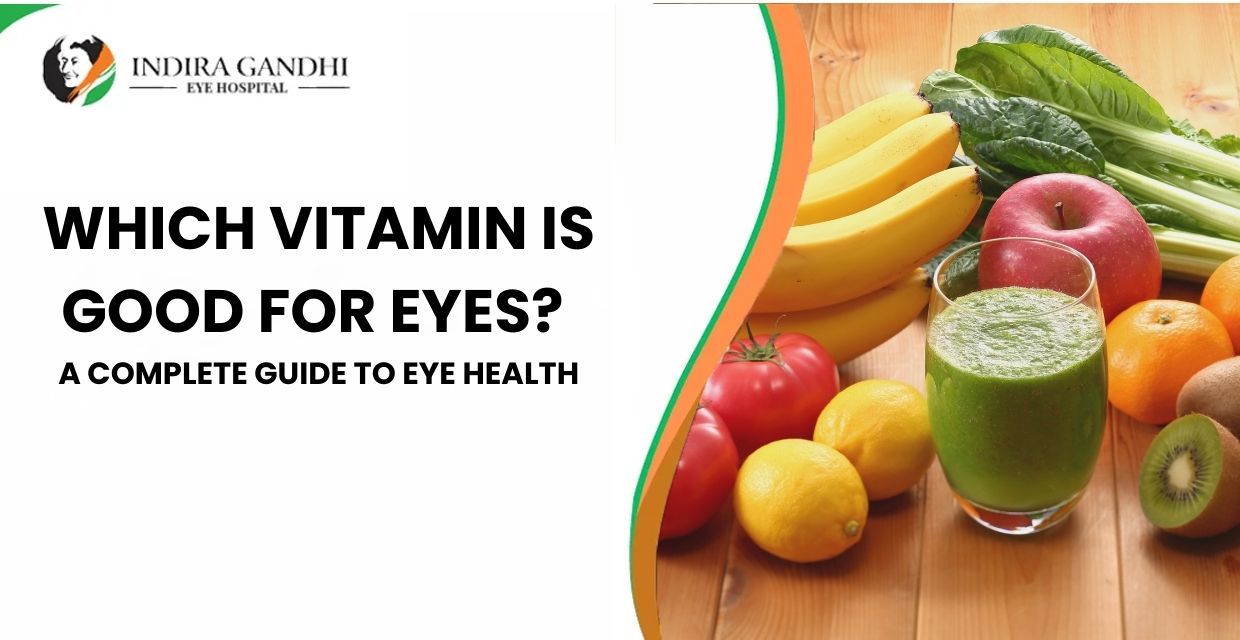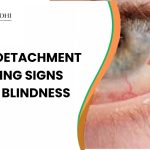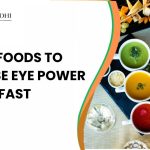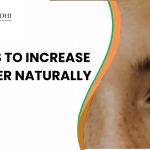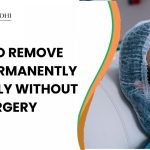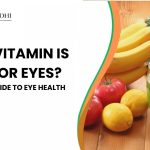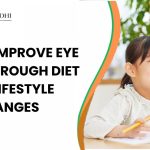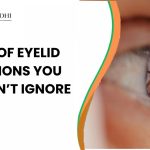|
Getting your Trinity Audio player ready...
|
It’s a question we’ve all heard since childhood: “Eat your carrots, they’re good for your eyes!” And while that simple piece of advice holds some truth, the reality of what it takes to nourish your eyes for a lifetime of healthy vision is far more comprehensive and fascinating. The idea that a single magical vitamin can be the key to perfect eyesight is a common misconception. The truth is, your eyes are complex organs that thrive on a wide variety of vitamins, minerals, and other nutrients, all working together in perfect harmony.
So, when you ask, Which Vitamin Is Good for Eyes?, the most accurate answer is that it’s not just one, but many, working as a powerful team. Today, we’re going to go beyond the old age and provide you with a complete guide to eye health, exploring the essential vitamins and nutrients that are crucial for protecting your vision, preventing common eye diseases, and keeping your eyes feeling their best. We’ll delve into the science behind how these nutrients work and offer practical, everyday advice on how to get them into your diet. This is a journey to truly understand what it takes to protect your precious eyesight for years to come.
The ABCs of Eye Health: A Deep Dive into Key Vitamins
Let’s begin by exploring the most vital vitamins for your vision. While there are many, a few stand out for their specific and powerful roles.
Vitamin A: The Visionary Antioxidant
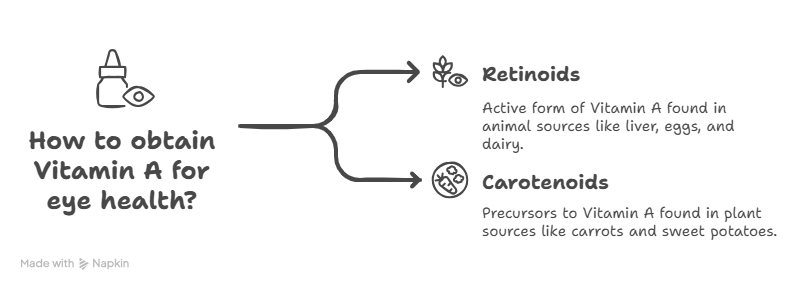
This is the vitamin most directly linked to eye health, and the one your mom was likely thinking of with the carrot advice. Vitamin A is crucial for maintaining the function of the light-sensitive cells in your retina, the part of the eye that converts light into the electrical signals our brain interprets as images.
- Function: Vitamin A is a key component of a protein called rhodopsin, which is essential for low-light and night vision. Without enough Vitamin A, the eye struggles to see in the dark, a condition known as night blindness. More severe deficiency can lead to a serious condition called xerophthalmia, which can damage the cornea and potentially cause blindness.
- Two Forms: Vitamin A comes in two main forms.
- Retinoids: This is the active form of Vitamin A, found in animal sources.
- Sources: Rich sources include liver, eggs, and dairy products.
- Carotenoids: These are the precursors to Vitamin A, found in plants. The most well-known is beta-carotene, which your body can convert into Vitamin A.
- Sources: Brightly colored fruits and vegetables such as carrots, sweet potatoes, pumpkin, and butternut squash are excellent sources.
- Retinoids: This is the active form of Vitamin A, found in animal sources.
Need an Eye Test or Treatment?
Get your vision checked by trusted specialists. From routine eye tests to advanced treatments, our experts ensure the best care for your eyes. Book your appointment today for healthy and clear vision!
Book Appointment with Eye ExpertVitamin C: The Collagen Builder
While we often associate Vitamin C with boosting the immune system, it is also a powerful antioxidant and a vital nutrient for eye health.
- Function: Vitamin C plays a crucial role in the production of collagen, a protein that provides structure to many parts of your body, including your cornea and the blood vessels that nourish your eyes. High concentrations of Vitamin C are found in the lens of the eye, where it helps prevent oxidative stress. Some studies suggest that adequate intake of Vitamin C may help lower the risk of developing cataracts, which is a clouding of the lens.
- Sources: Vitamin C is abundant in many fruits and vegetables.
- Sources: Excellent sources include citrus fruits (oranges, grapefruit), red and green peppers, broccoli, kiwis, strawberries, and Brussels sprouts.
Vitamin E: The Cell Protector
Like Vitamin C, Vitamin E is another potent antioxidant that helps protect your eye cells from damage caused by free radicals.
- Function: Free radicals are unstable molecules that can damage healthy cells, and they are a natural byproduct of metabolism. Environmental factors like cigarette smoke and UV light also generate them. Vitamin E helps to neutralize these free radicals, thereby protecting your cells from oxidative stress. It is believed to work in synergy with other antioxidants like Vitamin C to provide a protective shield for your eyes and may help in lowering the risk of age-related macular degeneration (AMD) and cataracts.
- Sources: Vitamin E is primarily found in nuts, seeds, and oils.
- Sources: Good sources include almonds, sunflower seeds, peanuts, avocado, and vegetable oils like olive oil.
Beyond the Vitamins: Essential Minerals and Nutrients
As promised, a complete guide to eye health requires looking beyond just the vitamins. Several minerals and other nutrients play equally crucial roles. These are key to fully understanding Which Vitamin Is Good for Eyes? and all the other factors involved.
Zinc: The Vision Transporter
Zinc is a vital mineral that works as an assistant to Vitamin A.
- Function: It plays a crucial role in helping your body absorb Vitamin A and in transporting it from the liver to the retina. Once in the retina, zinc is essential for the production of melanin, a protective pigment in the eye. A zinc deficiency can lead to impaired vision.
- Sources: Zinc is found in a variety of foods, with some of the best sources being animal-based.
- Sources: Red meat, shellfish (especially oysters), beans, nuts, and whole grains.
Omega-3 Fatty Acids: The Lubricant and Structural Key
These healthy fats, specifically DHA (docosahexaenoic acid), are fundamental to the structure of your retina.
- Function: A high concentration of DHA is found in the photoreceptor cells of the retina, and it is crucial for their proper function and development. Omega-3s also play a key role in preventing dry eye syndrome. They support the meibomian glands in your eyelids, which produce the oily layer of your tear film, preventing tears from evaporating too quickly and keeping the eye’s surface well-lubricated.
- Sources:
- Sources: Fatty fish such as salmon, tuna, mackerel, and anchovies are the best sources. For vegetarians, flaxseeds, chia seeds, and walnuts are good plant-based sources.
Lutein and Zeaxanthin: The Eye’s Natural Sunglasses
These are a type of carotenoid, the same family as beta-carotene, but they are a separate class of nutrients that deserve special mention.
- Function: Lutein and zeaxanthin are powerful antioxidants that accumulate in the macula. They are often referred to as “the eye’s natural sunglasses” because they act as a filter, protecting your macula from the harmful effects of high-energy visible blue light from both the sun and digital screens. Research shows that adequate intake of these two nutrients can help lower the risk of developing age-related macular degeneration (AMD) and cataracts.
- Sources: They are found in many of the same foods as Vitamin A.
- Sources: Dark, leafy greens like kale, spinach, and collard greens are especially rich in lutein and zeaxanthin. Also, corn, broccoli, peas, and egg yolks are good sources.
Need an Eye Test or Treatment?
Get your vision checked by trusted specialists. From routine eye tests to advanced treatments, our experts ensure the best care for your eyes. Book your appointment today for healthy and clear vision!
Book Appointment with Eye ExpertA Holistic Approach to Eye Health: Beyond Diet
While a nutrient-rich diet is a cornerstone of good eye health, it’s not the only factor. A truly complete guide to eye health involves a holistic approach that includes lifestyle and environmental considerations. Combining proper nutrition with these other habits is the key to safeguarding your vision for the long term.
Stay Hydrated
This simple habit is often overlooked. Your eyes, like the rest of your body, need to stay hydrated to function properly. When you are dehydrated, your tear production can decrease, leading to dry, gritty, and uncomfortable eyes. Drinking plenty of water throughout the day ensures that your tear film remains healthy and robust.
Regular Exercise
Physical activity is not just good for your heart and waistline; it also benefits your eyes. Regular exercise improves blood circulation, which ensures that your optic nerve and the other structures of your eyes receive an adequate supply of oxygen and nutrients. It can also help manage systemic conditions like diabetes and high blood pressure, both of which can negatively impact eye health.
Don’t Smoke
Smoking is one of the worst habits for your eye health. It significantly increases your risk of developing cataracts, age-related macular degeneration, and optic nerve damage. The toxins in cigarette smoke can damage the blood vessels that nourish the eyes and lead to oxidative stress. Quitting smoking is one of the most impactful things you can do to protect your vision.
Wear UV-Protective Sunglasses
Just as you protect your skin from the sun’s UV rays, you must protect your eyes. Long-term exposure to UV radiation is a major risk factor for developing cataracts and macular degeneration. Always wear sunglasses that block 99% or 100% of both UVA and UVB rays whenever you are outdoors, even on cloudy days.
Give Your Eyes a Break from Screens
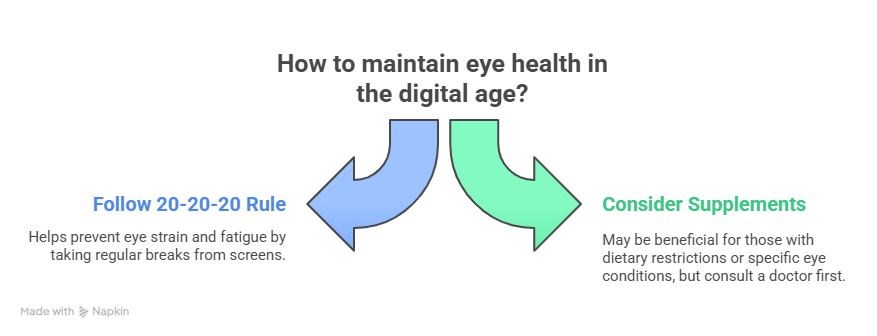
The modern digital world places unprecedented demands on our eyes. Prolonged screen use can lead to digital eye strain, headaches, and dry eyes. To combat this, follow the 20-20-20 rule: every 20 minutes, look at an object 20 feet away for at least 20 seconds. This simple act helps to prevent eye muscle fatigue and keeps your eyes feeling comfortable.
The Importance of Supplements (and a Cautionary Note)
For most people, a well-balanced diet provides all the essential vitamins and nutrients needed for eye health. However, for individuals with specific dietary restrictions (like vegetarians or those with allergies) or those diagnosed with certain eye conditions, supplements may be an option.
- Age-Related Eye Disease Studies (AREDS): The landmark AREDS and AREDS2 studies showed that a specific combination of antioxidants and minerals could slow the progression of advanced AMD. These supplements are specifically for patients with this condition and are not a preventative for the general public.
- A Word of Caution: It is crucial to remember that a supplement is not a substitute for a healthy diet, and taking excessive amounts of certain vitamins can be harmful. Always consult with your doctor or ophthalmologist before starting any new supplement regimen to ensure it is safe and appropriate for your individual needs.
Need an Eye Test or Treatment?
Get your vision checked by trusted specialists. From routine eye tests to advanced treatments, our experts ensure the best care for your eyes. Book your appointment today for healthy and clear vision!
Book Appointment with Eye ExpertFrequently Asked Questions (FAQs) About Eye Nutrition
Can a specific vitamin cure my vision problems like nearsightedness or astigmatism?
No, vitamins and nutrients cannot change the physical shape of your eyeball or cornea, which are the root causes of vision problems like nearsightedness, farsightedness, and astigmatism. They are essential for maintaining the health of your eye tissues and preventing diseases, but they cannot correct your prescription.
What is the single most important nutrient for my eyes?
While Vitamin A is often highlighted for its role in vision, the most important “nutrient” is a balanced combination of vitamins and minerals. Nutrients like lutein, zeaxanthin, Omega-3s, and zinc work together to provide comprehensive protection and support for your eyes.
Can taking a lot of a certain vitamin improve my vision?
No, consuming excessive amounts of a single vitamin will not improve your vision and may even be harmful. For example, excessive Vitamin A can be toxic. A balanced diet and, if necessary, a doctor-recommended supplement are the safest and most effective approaches.
Should I take eye health supplements to protect my eyes from screen use?
For general eye health and to combat the effects of screen use, a diet rich in fruits, vegetables, nuts, and fatty fish is the best approach. Supplements may be beneficial for individuals with dietary deficiencies or specific medical conditions, but you should always consult a professional first.
What foods should I eat to get a good dose of vitamins for my eyes?
You can get all the vitamins and nutrients your eyes need from a wide variety of foods. Key sources include dark leafy greens (for lutein and zeaxanthin), carrots and sweet potatoes (for Vitamin A), citrus fruits (for Vitamin C), almonds and seeds (for Vitamin E), and fatty fish (for Omega-3s).
Does drinking carrot juice every day help my eyesight?
Carrot juice contains a high amount of beta-carotene, which the body converts into Vitamin A, essential for vision. While it is beneficial, it is not a complete solution. A varied diet that includes other fruits, vegetables, and protein is a much more effective strategy for comprehensive eye health.
Your Vision, Our Priority: Expert Care at Indira Gandhi Eye Hospitals
Which Vitamin Is Good for Eyes, is a question that opens the door to a much larger and more powerful truth: that true eye health comes from a holistic approach to your diet and lifestyle. From the nutrients on your plate to the habits you practice every day, every choice contributes to the long-term well-being of your vision.
At Indira Gandhi Eye Hospitals, we understand the intricate connection between diet, lifestyle, and eye health. Our team of experienced ophthalmologists is dedicated to providing comprehensive care, from routine eye exams to advanced diagnostics and treatments. We are here to answer your questions, assess your unique needs, and offer the most effective solutions to protect your precious eyesight. Remember, an eye exam is the only way to get a complete picture of your eye health.
For a comprehensive eye examination and to receive personalized advice on nutrition and eye care, we invite you to connect with us. Let Indira Gandhi Eye Hospitals be your trusted partner in safeguarding your most precious sense.
Need an Eye Test or Treatment?
Get your vision checked by trusted specialists. From routine eye tests to advanced treatments, our experts ensure the best care for your eyes. Book your appointment today for healthy and clear vision!
Book Appointment with Eye Expert

